Graham Reid | | 4 min read
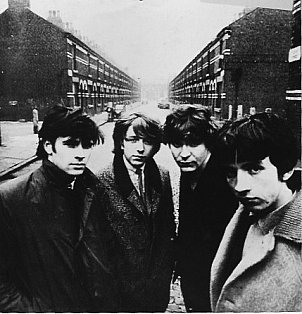
Across a number of illustrated articles, Elsewhere has shown how Beatles' album covers became so iconic that they would be copied, parodied and paid earnest homage to.
If their debut Please Please Me caused no visual ripples at the time (although it did subsequently), With the Beatles of 1963 was a real game-changer.
By this time they were Enormously Famous in Britain (America would fall within months of the album's release when the same cover was used for their Meet the Beatles version).
And that striking cover by Robert Freeman of half-lit, unsmiling faces made such an impact that it was immediately copied.
In this article about the Sorrows album of '65 where they adopted a similar look, we identified albums by the Rolling Stones, Kinks and Pretty Things which had followed in the wake of With the Beatles.
Then there were the Beatles' pals from Liverpool, the Merseybeats who had also played the Cavern, toured Britain, enjoyed early hit singles, even made a short film Beatit, had their photo taken by Max Scheler (above) and then – signed to Fontana, alongside the Pretty Things among others – recorded this self-titled debut album.
 And on the cover by the uncredited photographer (perhaps Scheler) they looked exactly like a band of the Beatlemania era.
And on the cover by the uncredited photographer (perhaps Scheler) they looked exactly like a band of the Beatlemania era.
They didn't last long as the Merseybeats but along with the album certainly recorded enough songs on EPs and singles for there to be quite a number of compilations down the decades.
And in some form or other they carried on playing off and on for many decades with dozens going through the line-up behind singer/writer Tony Crane (and sometimes bassist Billy Kinsley).
In a slightly interesting aside, the founding duo of singer/writer Crane and Kinsley got together again as the Merseys after the Merseybeats broke up in '66 and had a hit with their cover of the McCoy's Sorrow which David Bowie covered on Pin Ups . . . and George Harrison borrowed a line from it for It's All Too Much.
But our attention turns to their sole Merseybeats album – in that terrific period-piece cover – which has been pulled randomly from the shelves for consideration.
In places it is a cracker and they live up to their name as they distill the whole three guitars/drums + backing vocals and streamlined catchy pop.
Really Mystified by Crane could have slotted onto With the Beatles (just requiring a McCartney/Little Richard “ooh-ooh” to bring it home).
Milkman by Crane and bassist Johnny Gustafson (also of The Big Three) is very nice slice of jangle pop, especially if you enjoyed Herman's Hermits' better if somewhat anodyne songs like I'm Into Something Good and Silhouettes .
They might be the highpoints however because elsewhere they – as did the Beatles initially – fill the album out with their versions of popular tunes (Rodgers and Hammerstein's Hello Young Lovers given a beat, Irving Berlin's The Girl That I Marry, the hoary My Heart and I).
There's a cringe-inducing, slow dance version of Lavender Blue (“dilly dilly”) but a decent treatment of Don't Turn Around which was released as a single to little effect (and losing the superior Really Mystified to the flipside).
There was the band's problem: half the album – Sam Cooke's Bring It On Home to Me among them – was written by other songwriters, and some of the slow material chosen for them (which might have been popular with Cavern girls) just sounds dated.
And it did even then in an age when the Beatles and the Stones et al were knocking out exciting singles and albums.
As British writer Bob Stanley noted, “in spite of their name, the Merseybeats were the least generic Merseybeat group. Their forte was the beat ballad . . .”
As with many artists at the time they were caught between old school showbiz and contemporary pop excitement.
They – and whoever was advising them – had a bob each way, while the Beatles were turning up with their own material and not needing to get material from Denmark St or publishers waving the idea of a Mersey-like version of tried'n'true standards by Rodgers and Hammerstein etc.
![]() But on the album they successfully Mersey-fy with handclaps Jerry Butler's soul ballad He Will Break Your Heart (which Butler had co-written with Curtis Mayfield) and they do a passable pop-lite version of the country song Love is Blind which was the flipside of Jerry Lee Lewis' High School Confidential (country being very popular in Liverpool).
But on the album they successfully Mersey-fy with handclaps Jerry Butler's soul ballad He Will Break Your Heart (which Butler had co-written with Curtis Mayfield) and they do a passable pop-lite version of the country song Love is Blind which was the flipside of Jerry Lee Lewis' High School Confidential (country being very popular in Liverpool).
Their original Jumping Jonah by bassist Johnny Gustafson (also of The Big Three) is little more than retro rock'n'roll but doubtless played well live alongside their versions of Long Tall Sally and other period-piece crowd-pleasers . . . which the Beatles and others quickly grew out of.
So as a debut album, this tried too hard to appease a number of different masters and you do wonder if, left to write more of their own songs, the Merseybeats might have been more enduring contenders.
An album with only three or four good songs . . . but a great cover.
.
This Merseybeats album doesn't appear on Spotify but you can piece most of it together from this collection using this track listing of the original: Milkman, Hello Young Lovers, He Will Break Your Heart, Funny Face, Really Mystified, The Girl That I Marry, Fools Like Me, My Heart and I, Bring It on Home to Me, Lavender Blue, Jumping Jonah and Don't Turn Around.
There was also a decent Edsel compilation (with a four page fold-out history released on vinyl as Beat and Ballads in '82 (which they suggested be played on mono).
.
Elsewhere occasionally revisits albums -- classics sometimes, but more often oddities or overlooked albums by major artists -- and you can find a number of them starting here

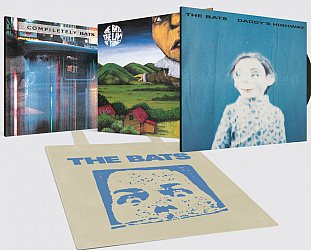
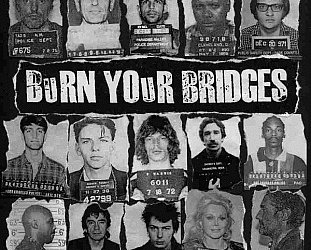
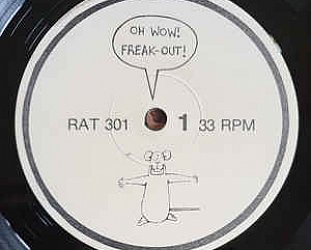
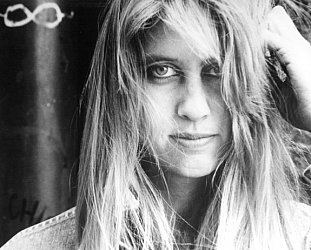
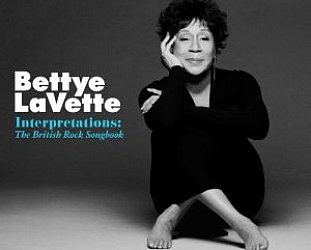
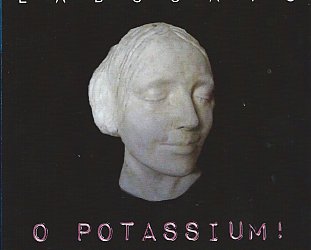
post a comment